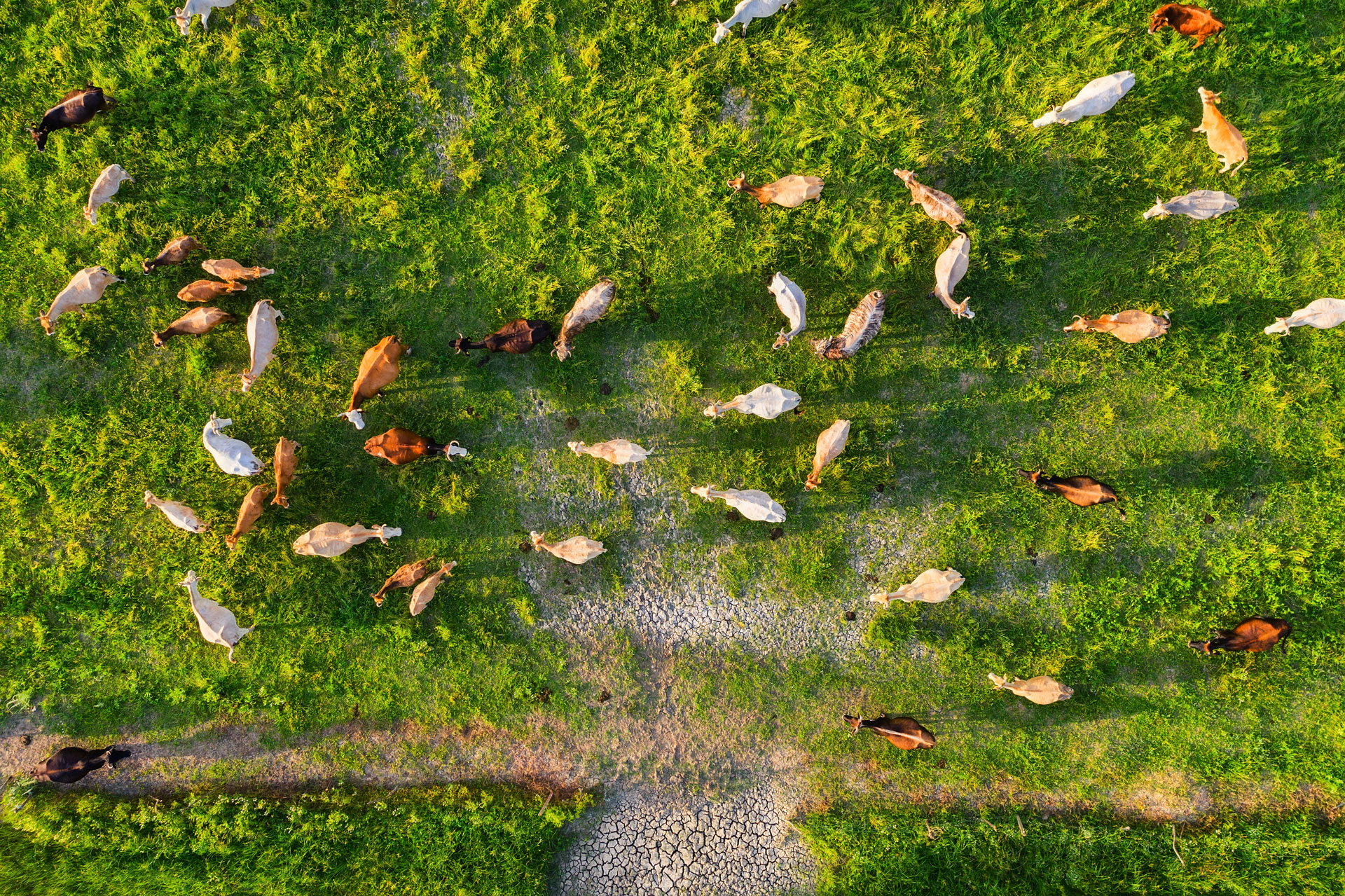Steps for Buying, Owning & Selling Livestock
As a potential livestock owner, there are certain legal responsibilities designed to protect you and your animals. In Victoria responsibilities are laid out in laws, codes, regulations and industry quality assurance programs. This guide is designed to help you meet the requirements for owning livestock.
If you are thinking about keeping livestock it is important to have the correct facilities to feed, water and handle animals before you buy them.
1. Check your zoning
Check your property’s zoning. This will govern what type of farming can occur on your land and if it requires a planning permit and a farm plan. For more information visit rural zones explained and check with your local council.
2. Knowing where animals are is important!
The ability to identify where livestock are kept and where they have been is called traceability. It allows Agriculture Victoria (Department of Agriculture) to protect your animals against disease and others to return stray or stolen animals.
It also allows animal movements to be traced from one property to another and from paddock to plate. Livestock traceability is based on three elements:
- Identify properties with livestock. Property Identification Code (PIC)
- Identify individual animals. National Livestock Identification System (NLIS) approved ear tags
- Track animal movements. Records all movement of animals in the NLIS database
Property identification
Get a Property Identification Code (PIC)
All properties with livestock require a PIC, a Property Identification Code. It enables you to be contacted in an emergency or if stock have escaped from your property. It is a requirement under Victorian law but it is simple to do and free. Apply for your free PIC from Agriculture Victoria or call 1800 678 779.
National Livestock Identification System (NLIS)
Set up a National Livestock Identification System (NLIS) account
The NLIS is the Australian system for recording sheep, cattle and goats movements. Once you have an NLIS account you can register your PIC on the system and be set up to purchase livestock. Set up your free NLIS account here or call 1800 683 111.
Use NLIS approved ear tags
In Victoria all cattle, sheep and goats must have an NLIS approved electronic ear tag. If an animal is born on your property, you are responsible for tagging and recording the animal on the database. Purchase approved tags from Agriculture Victoria or call 1800 678 779.
Animal movements
In Victoria, if a new animal comes onto your property you must register its tag details on the NLIS database within 48 hours. You can arrange a third party, such as an agent, to do this on your behalf.
Become part of the Livestock Production Assurance (LPA) program
To legitimately sell stock you must be accredited with the Livestock Production Assurance (LPA) program. This quality assurance program ensures the integrity and safety of Australian livestock and produce. It also gives you access to National Vendor Declarations.
- Click for more information about the LPA program and the accreditation process.
Register for LPA through Meat & Livestock Australia or for help call 1800 683 111.
Use National Vendor Declarations (NVDs)
All livestock sold in Victoria must be accompanied by an LPA NVD, whether it’s one animal being sold or 1000. NVDs include information about an animal’s history and food safety status. You can access NVDs once you are accredited with the LPA program. NVDs are available through Meat and Livestock Australia. Electronic NVDs are free or hard copies can be purchased by calling 1800 683 111.
Use an Animal Health Declaration
An Animal Health Declaration (AHD) is a form with information about animals being purchased, such as their health status, past treatments and vaccinations. Buyers should request an AHD whenever they buy stock. Animal Health Declarations are mandatory for some movements between states. There are free animal health declarations for cattle, sheep or goats at the Farm Biosecurity website.
3. Other things to keep in mind
Understand your animal welfare obligations
It is important that animals are well looked after. The Australian Animal Welfare Standards and Guidelines outline the minimum national standard for care and management of livestock, including feed and water, appropriate handling and management of animals, breeding, humane destruction and more.
Don’t feed swill to pigs
Swill is food scraps that have come in contact with meat including left over meals, bakery waste and used cooking oils. Feeding swill can make your pig sick and is illegal in Australia because it increases the chance of an exotic disease outbreak. Find out more about swill feeding from Australian Pork®.
Sign up for myMLA
Join myMLA for free to have one username and password for your NLIS, LPA and NVD accounts and more.
Purchasing livestock
If you need more information or help purchasing livestock, stock agents can assist. To find stock agents in your area, search the ALPA register.
More Resources
Stock Sense Peri-Urban Welcome Packs for: (Click to download)

